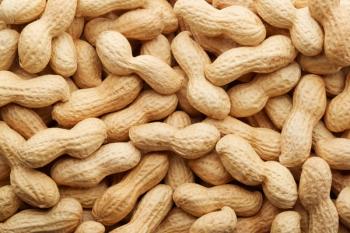
Behavior: Ask the experts
Can 6-year-old head banger be stopped?
BEHAVIOR:
ASK THE EXPERTS
CAN 6-YEAR-OLD HEAD BANGER BE STOPPED?
Q I have a 6-year-old boy in my practice who has been banging his head since he was 18 months old. At 2 years of age we considered it typical toddler behavior. When he was 4, we assumed he was especially stubborn. Now the boy is in first grade, and he still wakes up several times a night and bangs his head until he is told to stop.
He is the oldest of four boys and is a bright, sensitive, well-behaved child. His now-bizarre behavior has outlasted a family move and a change of bedrooms. The family has tried positive reinforcement, punishment, and ignoring the behavior.
It seems unlikely that the boy will outgrow head-banging any time soon. His behavior is disruptive to the household and painful to him. What should I advise the parents?
Christie Yi, MD
New York, N.Y.
A The boy's age and his inability to control his head banging after his parents ask him to stop make this situation unusual. Our recommendations assume that the boy is normal neurologically, has normal sleep patterns (regular bedtime and stays in his own bed), and is banging his head against the wall only while in bed. They also assume that the family is united in its efforts to end the head banging and that no one is getting secondary gain from the behavior.
Here is what you can suggest to the parents:
Liberally pad the wall that the child is banging his head against to keep the rest of the family from hearing it. If the boy tries to remove the padding, it suggests volition and indicates that his parents' responses are probably reinforcing his behavior. If padding the wall becomes a power struggle, move the bed to the center of the room and secure it to the floor (walls and floors can always be repaired).
Make sure the child is comfortable and feels secure in his bedroom. Add night light(s), stuffed animals, wall decorations, and bedside family photos. Also, try leaving the bedroom door open at night.
Institute a point system to modify the boy's behavior, using the following approach:
- If the parents hear head banging (even with padding), they should wait at least five minutes before intervening.
- The child earns five points if he stops head banging before his parents intervene.
- He earns three points if he stops within a few seconds after a parent calls his name or uses a flashlight to signal him from outside his door.
- He earns one point if he stops immediately when a parent enters his room to ask him to stop.
Once these strategies are in place, plan an extended training period:
Week 1: Award points as described above for every successfully terminated head banging incident per night. Award 10 points for every night when no head banging occurs. (The parents should give the child the benefit of the doubt in awarding points.)
Week 2: Award points only for the first occurrence each night; award 10 points for every night with no head banging.
Week 3: Award 15 points per night only for nights free of head banging.
Using a calendar to keep track, award points the next morning. Develop a menu of rewards for which points can be redeemed, such as: 15 minutes of special time with a parent that day for two to three points; special treats for five to 10 points; small prizes for 10 to 15; and special trips or activities in the immediate future for 15 to 20 points.
For this program to work, several things must happen:
- Parents must eliminate all extraneous positive or negative attention to head banging after explaining to the child how the program works.
- Parents must apply the program consistently and deliver rewards as promisedon time, no exceptions.
- Parents and child must give the transition to no head banging time to work. They may need to spend more than a week at each training level or break down the ways to earn points into smaller steps.
If these recommendations do not succeed, a comprehensive mental health consultation is indicated to assess other factors that may be contributing to the head banging.
Bruce Masek, PhD
Michael Jellinek, MD
DR. MASEK is codirector of the child psychiatry outpatient clinic, Massachusetts General Hospital, Boston.
DR. JELLINEK is president of Newton Wellesley Hospital, Newton, Mass.; chief, child psychiatry service, Massachusetts General Hospital, Boston; and professor of psychiatry and of pediatrics, Harvard Medical School, Boston.
Behavior: Ask the experts. Contemporary Pediatrics November 2003;20:29.
Newsletter
Access practical, evidence-based guidance to support better care for our youngest patients. Join our email list for the latest clinical updates.








